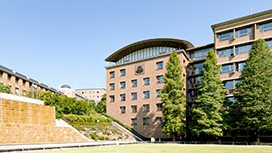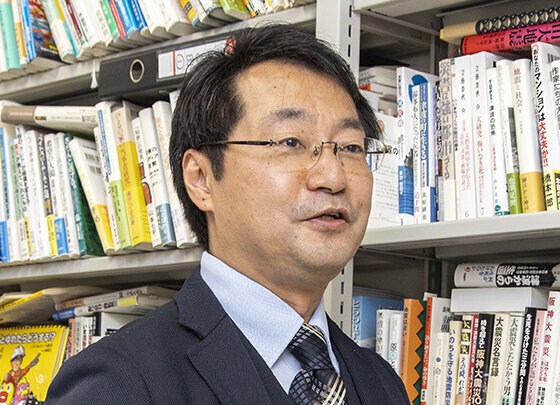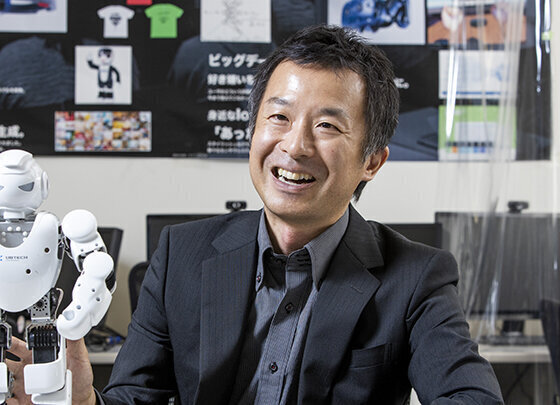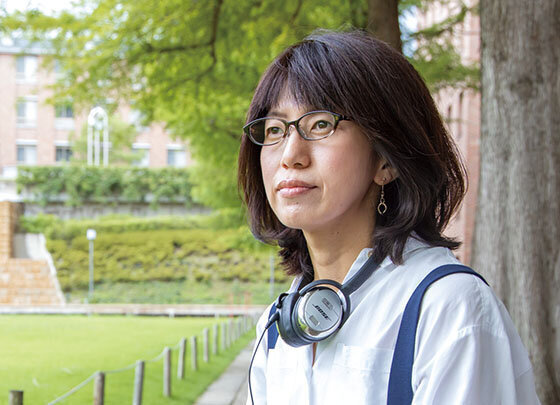KANDAI
HEADLINES

- STUDY
The Data Science Education Program takes advantage of the combined powers of liberal arts and science Developing human resources to create a future no one can imagine
Ryota Natori, Professor and Dean of the Faculty of Informatics
Have you heard of data science, an innovative technology starting to see use in a wide variety of fields? This technology is used to analyze an enormous amount of data and then apply the results to the resolution of related issues. As an example, in the fashion industry, by collecting data pertaining to the types and colors of items chosen by consumers, data science has already reached the stage where upcoming trends can be predicted. In April of 2021, Kansai University's Faculty of Informatics will establish the Data Science Education Program. We recently had a chance to hear from Ryota Natori, a Professor and Dean of the Faculty of Informatics, about the advantages of a department that advocates the integration of liberal arts and science education. The implementation this program is attracting increased attention around the world.
Kansai University was already providing data science education way back in 1994.

The Data Science Education Program scheduled to be established in 2021 is a newly designed program intended to help students gradually master data science techniques. However, the program actually only includes one newly established course. This is because―ever since the Faculty of Informatics was established in 1994―it has created various courses in the data science field. Examples include our practical data literacy and model analysis courses.
You might be wondering why we reorganized such courses as a new program. One major reason for this is to build awareness among students. The purpose of Faculty of Informatics studies is to understand information and apply it to the development of various fields, which is similar to the data science approach. However, because the term data science has only recently come into common use, many students assume that it is an entirely new concept. To help remedy this situation, we decided to reorganize the relevant courses as a new program called the Data Science Education Program.
Data analysis skills are not the only ones required.
When many people hear the phrase data science, they might imagine that it is merely science and has no relation to the humanities. In other words, they assume that data science involves analyzing collected data, using it to teach AI and programs, and acquiring other informatic skills. Indeed, the objectives of the new program are to master such analysis and data-processing techniques. However, the fact remains that data science includes more than just these skills.
Data is simply numbers, which means it is nothing more than simple information. Therefore, without a proper understanding of the structure behind the data, suitable analysis is not possible no matter how outstanding your skills are. As a concrete example, let's think about election results. For example, the number of votes is nothing more than numerical information that shows how many votes were won by each candidate. However, there are various background details inexplicably linked to such data―including the political party each politician belongs to as well as each politician's age, gender, and whether they are a hereditary politician or past minister―all of which result in each politician's number of votes. The only way to achieve a true-to-life analysis is to first understand this sort of background and organize the data accordingly. In addition, a detailed knowledge of each professional field is necessary to come up with ideas on how to use the analysis results. Therefore, in addition to the data handling skills learned during the Data Science Education Program, data science also requires knowledge of the humanities/social sciences in order to understand and use the data's background.
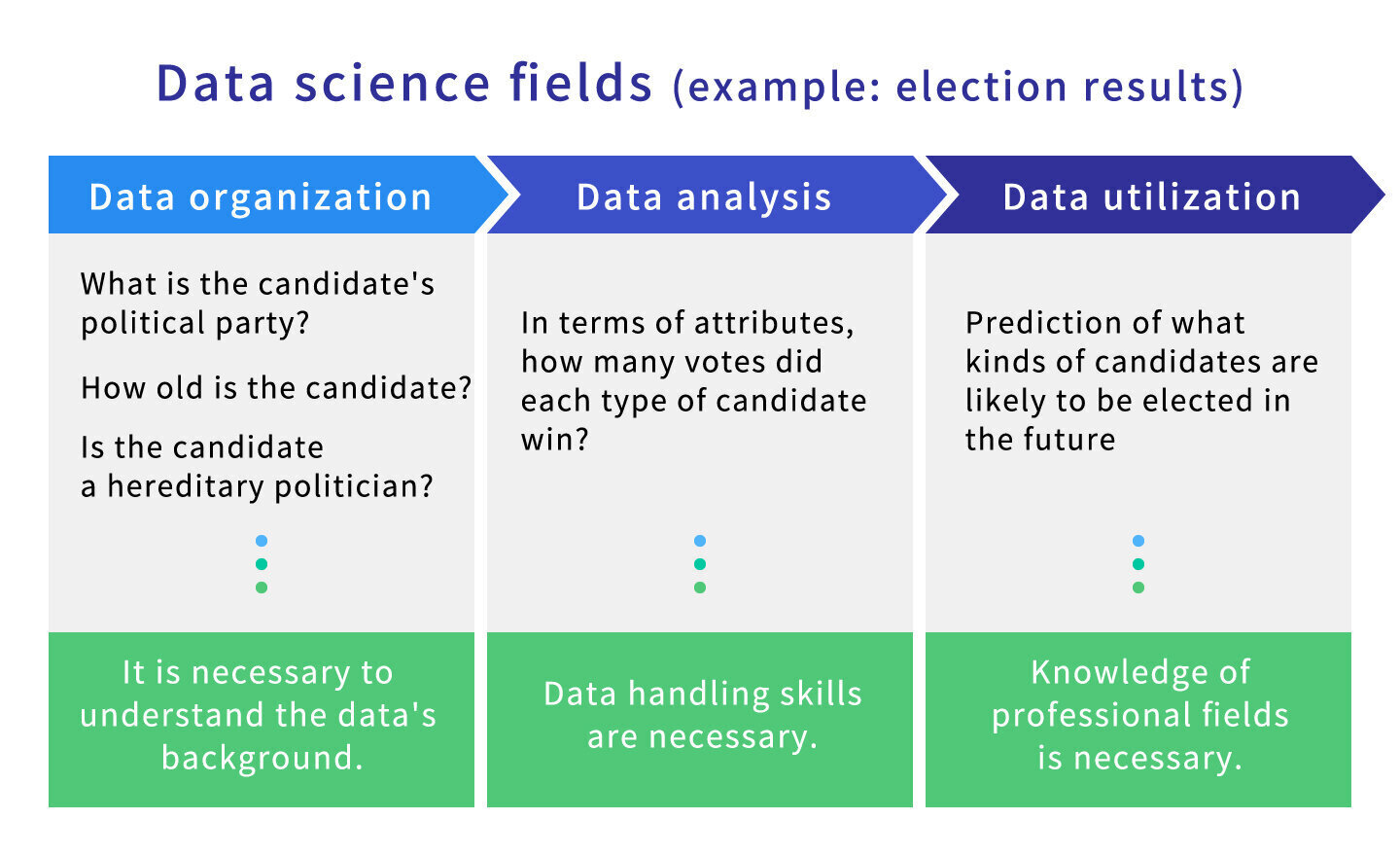
Developing human resources who know and can collect the necessary data

I already mentioned that the Faculty of Informatics has had courses related to data science ever since it was established. This includes understanding not only the technical aspects of data analysis but also the background. The Faculty of Informatics is unusual compared to similar faculties throughout Japan in that it integrates liberal arts and science, and it therefore opens many doors for both. Because the professors specialize in a wide array of fieldsーincluding not only engineering but also business administration, law, and psychologyーstudents can select the fields that personally interest them and combine multiple types of learning to explore their studies more deeply, which makes the Faculty of Informatics special.
For example, if a student is interested in business administration, they can take courses on marketing and attend seminars given by teachers specialized in business administration. They can then combine the knowledge they gain in business administration with the skills acquired through the Data Science Education Program to ultimately become a data scientist capable of predicting and analyzing new markets.
In this way, the Faculty of Informatics provides an environment where both data analysis skills and professional knowledge of each field, which are essential for data scientists, can be acquired. In other words, the fact that the Faculty of Informatics integrates liberal arts and science makes it an ideal environment for the development of data scientists.
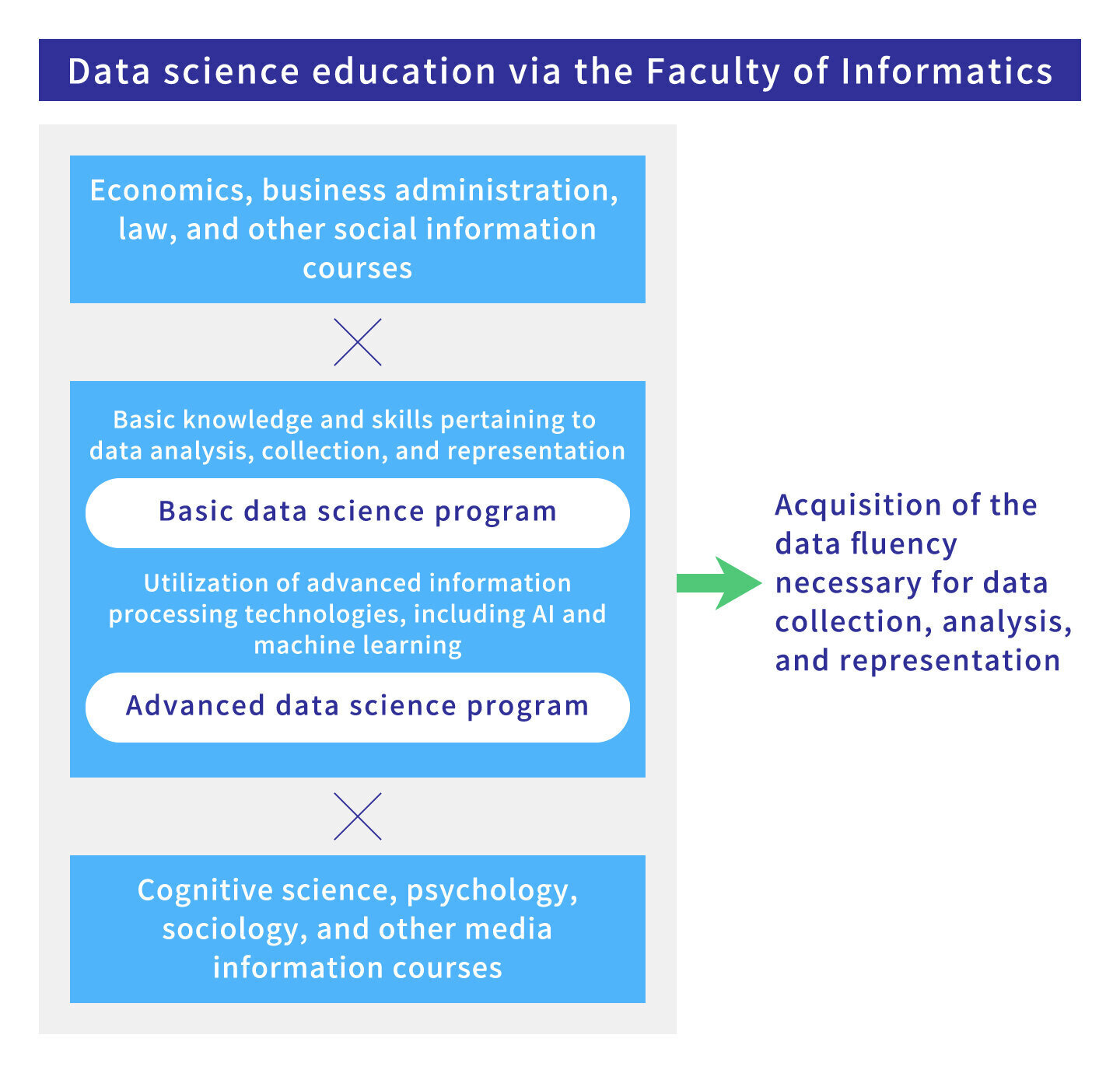
In addition to analyzing prepared data, another aim of the Faculty of Informatics is to develop human resources capable of considering the necessary data and collecting it themselves. At the Takatsuki Campus, we plan to set up a studio where motion-capture technology can be used to collect data on human movement as well as a facility for conducting psychological experiments in order to collect original and unique data based on a wide range of approaches. This will help cultivate the ability to consider what kind of data is necessary to analyze a given subject.
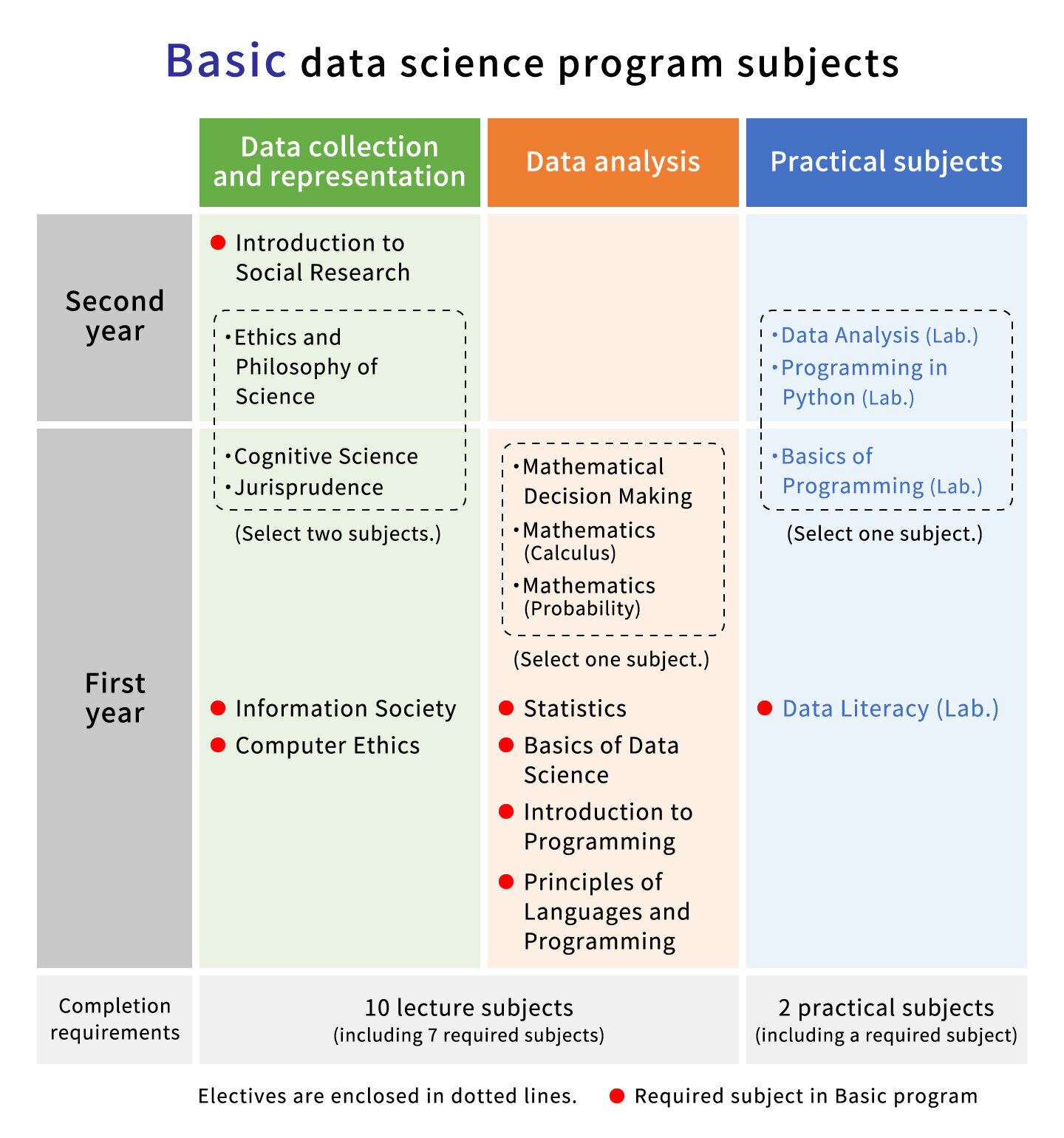
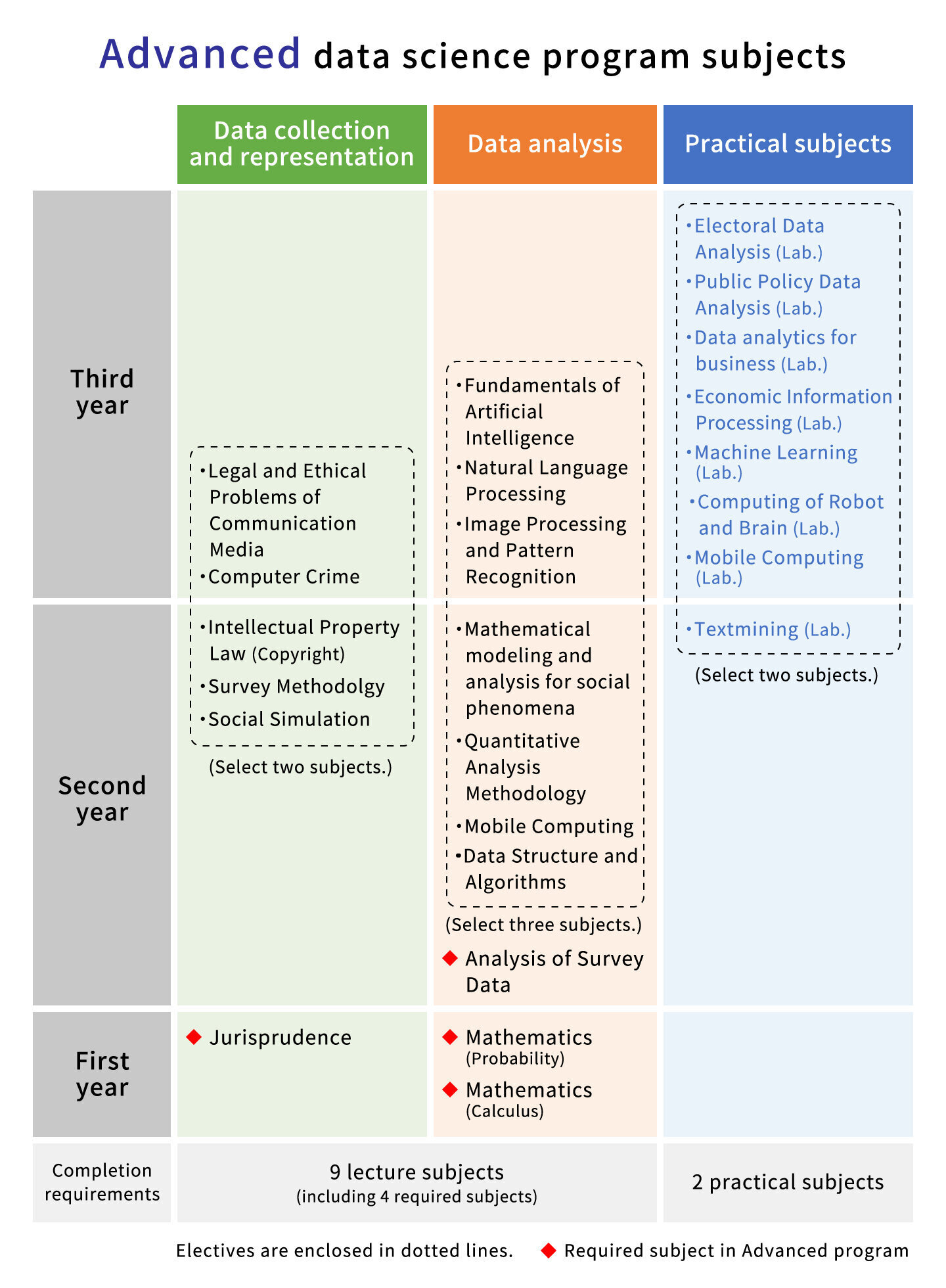
The role of data scientists is to create an unimaginable future.
Modern society is starting to use data in a wide range of fields, including business administration, economics, politics, agriculture, and environmental problems, and there is a shortage of data scientists to address such needs. However, no matter how much we try to develop human resources who possess only data analysis skills, I do not believe it will fundamentally resolve any issues. That's why the Faculty of Informatics develops human resources capable of combining data analysis skills with knowledge of professional fields. These are the kinds of data scientists who are truly required, and these are the human resources who will build our upcoming AI society and future.
Based on what I have said, it would be easy to mistakenly assume that data science is a difficult path requiring knowledge of both math and humanities/social sciences, but that's not the case. For example, I personally utilize data to research modern political science nowadays, but I used to be terrible at math. However, once I realized that data could be used to clarify political events―something I was interested in―I started getting excited. As a result, math, which I had considered a personal weakness, started looking different to me. So, what I'm trying to say is that, if you are a student who is worried because you aren't particularly good at math or liberal arts courses, there's really no need to be. Math that you use to try to figure out a field you like is enjoyable in a completely different way than math aimed at studying for or passing an exam.
People often ask me what kind of world we will be able to achieve thanks to the activities of data scientists, but I have never been able to give them a good answer. As an example, back in 1994―when the Faculty of Informatics was established―I thought the idea of knowing your exact location in real-time and being able to instantly calculate routes to any destination was a pipe dream. But that dream was achieved in just ten or twenty years. Data science is seeing similarly rapid progress, and its use is expanding. In the world of medical care, technology enabling the use of AI to instantly diagnose diseases is being researched. Meanwhile, truly self-driving cars will soon be a reality. I'm sure that the power of data science will enable us to achieve an even more incredible future. I hope that the students of the Faculty of Informatics will combine their skills, knowledge, and imagination to build a future no one can imagine.


- Ryota Natori / Professor (Faculty of Informatics)
- Professor Natori started working for the Kansai University Faculty of Informatics in 2000. He was appointed Dean in October of 2020. His specialty is the analysis of modern politics. Most of this analysis covers local politics and election systems. Although his research is focused on statistical analysis using election and survey data, he has also become more involved in simulations and database building in recent years.
Related articles
- TOP
- About Kansai University
- Public Relations
- List of Headlines
- Headline Article

